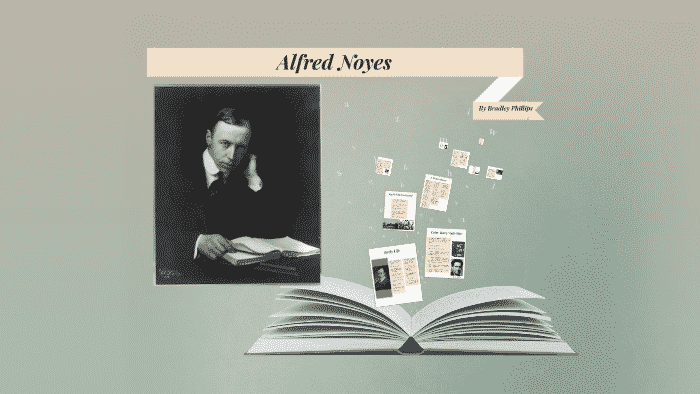When its time to move away, these seven steps help you to do it in style.
Life involves many hellos, but it also involves an equal number of goodbyes. A high school choral director makes parting comments to the seniors about to graduate. The boss hosts a party for a longtime staff member. You may be the one, instead, who’s about to leave the group. Taking advantage of a new employment opportunity, it’s your decision to leave your present job. In all of these cases, the event must be punctuated with those inevitable goodbye speeches. You’d like yours, though, to be special and not just one of “those” boring bye-bye’s that everyone dreads.
Not being boring is perhaps the biggest challenge facing the public farewell-bidder. You don’t want to utter the usual platitudes, yet those platitudes seem to be impossible to stamp out of your consciousness. Turning to psychology, you might hope to find some brilliant insights from relevant research that could guide the way. Surprisingly, there are no actual studies on the topic, but I did find several recent examples of farewell articles by journal editors ending their terms. Many of them were filled with the obvious platitudes (thanks to hard-working staff, great colleagues, brilliant authors, etc. etc.). One stood out as a model of what a good goodbye might look like.
Wayne State University’s Jeffrey J. Martin (2016) used his farewell editorial to thank the usual suspects (his university, for giving him support, and the members of his editorial board for reviewing articles, and authors for writing them). However, he added a strong dose of humor, including the self-deprecating kind, to distinguish his remarks from the typical recitation of people to whom he’s grateful. At the outset, he put the goodbye in psychological perspective, very appropriate for an editor of a psychology journal: “On accepting the role of editor, I immediately sensed a salient avoidance goal screaming out in my self-talk (i.e. `Do not be the person who starts this journal off as a failure’).” You might not want to use such jargon in your goodbye comments because you can’t be sure your audience will understand that psych-talk. However, it was an amusing turn of phrase and highly appropriate for his audience.
We often hear people talk about how challenged they felt when they began the role they’re now ending, and Martin’s was a non-obvious way to make the observation. Bringing the remarks full circle, also an excellent goodbye strategy, he notes toward the end that “I feel relatively certain that I was successful in avoiding my failure-oriented goal.” Backing this up, though, Martin adds another useful device into his comments and that was to provide objective data. He counted the number of citations the articles published during his tenure received, and there was a clear upward trend. Citations, like website hits, provide an indication of the extent to which a published work has impact. If you’re trying to show that you’ve avoided your “failure-oriented goal,” it can help to gather relevant data and report it to your audience (without sounding boastful, a point I’ll return to later).
Taking into account the many contexts for saying goodbye, these 7 strategies seem to have reasonably good generalizability no matter who you’re talking to and why:
Don’t be too self-centered: This is definitely an occasion to avoid “I-talk,” whether you’re the giver or receiver of the goodbye. If you’re the giver (i.e. the one who’s sending someone else off) it needs to be about the person, not you. If you’re the person who’s leaving, too much “I did this” is self-indulgent. Martin managed to avoid this in his farewell because he stuck to data, but I found another farewell piece by a different editor who used the opportunity to give herself credit for the success the journal achieved under her leadership. Quite tacky!
Avoid being maudlin: It’s definitely sad when people leave, but try to avoid excessive weepiness on your part of making everyone else in the room feel unduly sad. Funerals are, of course, a special case but even in this situation, the deceased might have preferred it if the speeches focused on happy moments to help comfort the bereaved.
Tell the truth: As time passes in any situation, we all tend to be revisionist historians, but it’s best not to make up feelings you don’t have or situations that never actually took place. A good farewell is sincere and honest, so don’t compromise its integrity by inventing stories or lavishing undue praise on people you’re really glad to see make their exit. In those unfortunate cases, you need to dig down deep and find something praiseworthy from their time with you or your organization. If you can’t, find someone else who will.
Adapt to the audience: There are plenty of inside jokes that can lead a farewell to fall flat. Not everyone will have shared equally in the moments you had with the person who’s leaving, and if you make it too specific to these particular incidents, there will be little material to which your audience can relate. Save your private jokes for private moments. In a public context it’s also wise not to say anything intended to embarrass your recipient. For example, don’t point out the expensive jewelry or cars that the honoree has acquired over his or her career even if it provides good material for some ribbing. Again, such comments are best left to share one-on-one (or not at all). The inside jokes that Martin made were fine for psychologists, but wouldn’t work for people working in chemistry, business, or finance.
Remain upbeat: You may be feeling bitter because the people honoring you apparently forgot to get you a parting gift, or because they’re making you turn in every last paper clip that lived in your desk drawer for the past 25 years. You may be leaving because you were let go or your employee is leaving after receiving a failing evaluation. There are plenty of opportunities for sore feelings to exist around the time of an ending. For the ceremonial occasion, or even that last day of final goodbyes, resist the temptation to let your true anger and resentment show. First of all, you’ll be burning bridges but more importantly, you’ll guarantee that the only way you’re remembered is as that ungrateful person who gave everyone a hard ti
Keep it short: How many speeches have you sat through that seemed interminable? And how many of them involved goodbyes? Probably most of the longest-seeming speeches indeed involved goodbyes, especially if some of tips 1-5 weren’t followed (i.e. being overly maudlin). If you’re one of several speakers, don’t feel that you need to compete for the longest screen time. Your words may be remembered as far more profound if they were communicated in a concise but impactful fashion.
End on a high note: As in Martin’s farewell, there was humor involved, and your farewell should also end with a tone of optimism and hope. Audiences expect, and therefore appreciate, your efforts to help them feel good about the person who’s leaving (or who has left) and about themselves. If you tend to drag out your endings because you don’t know how to stop talking, plan the words you’ll land on at the end ahead of time to be sure they communicate their intended message.
Parting can be, as Shakespeare said “sweet sorrow.” Putting together a great farewell tribute means that yours will be more sweet than sorrowful.




No Comments